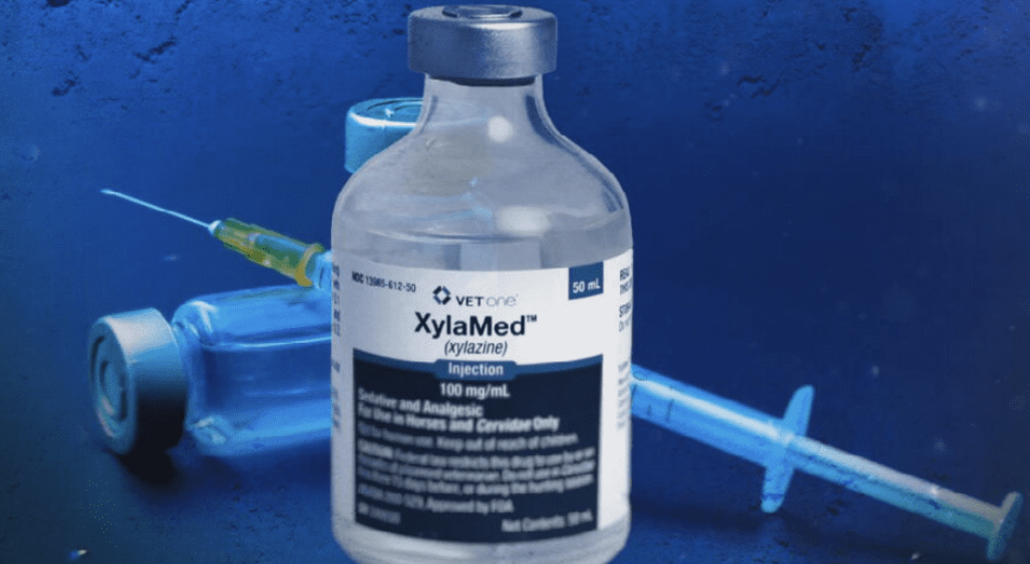Controlled alcohol consumption serves as a harm reduction strategy designed to assist problematic drinkers who aren't alcohol-dependent in lowering their consumption to healthier levels through understanding their drinking habits and practicing conscious consumption. This method represents a fundamentally different approach to tackling problematic drinking behaviors compared to traditional abstinence-focused recovery protocols.
The advantages of controlled alcohol consumption include making addiction services more reachable and appealing to particular groups of alcohol users while boosting their participation in therapeutic interventions. This strategy reduces treatment resource demands and may function as a reinforcing element within treatment programs.
The wellness and socio-economic advantages of controlled alcohol consumption encompass better sleep quality and energy levels, lowered likelihood of certain physical diseases and psychological disorders, enhanced socio-economic circumstances and psychosocial functioning, heightened self-worth, and diminished potential for alcohol-related damage to oneself and others.
Controlled alcohol consumption proves valuable in addressing alcohol addiction by stopping problematic drinking patterns from escalating into full alcohol use disorder.
What is alcohol moderation management?
Alcohol moderation management functions as a harm reduction technique helping problem drinkers decrease their alcohol intake or cease consumption completely. Offering an alternative to abstinence-based methods for tackling problematic drinking patterns, alcohol moderation management strives to cultivate mindful and responsible consumption habits. This approach is appropriate for those without physiological alcohol dependence and who haven't received diagnoses of moderate or severe alcohol use disorder.
As a harm reduction strategy for addiction, alcohol moderation management operates on the principle of respecting the dignity and rights of individuals exhibiting problematic alcohol-use behavior by engaging with them at their current state, rather than mandating abstinence. The primary objective of this therapeutic approach is enhancing physical and mental wellbeing among problem drinkers through a structured yet adaptable framework for reducing alcohol consumption.

What is the difference between alcohol moderation management and abstinence?
The contrast between alcohol moderation management and abstinence lies in the permitted alcohol consumption patterns within each strategy for reducing alcohol intake. Alcohol moderation management represents an intervention rooted in harm reduction principles. It concentrates on minimizing drinking's harmful consequences and encouraging safer consumption practices. This method aims to lower alcohol usage to safe, minimal levels that reduce potential harm. Conversely, abstinence regarding alcohol consumption is founded on teetotalism practices. It emphasizes completely eliminating alcohol consumption. Research indicates moderate drinking provides greater reinforcement than abstinence as a treatment approach, according to Bigelow and colleagues' 1972 publication in Behaviour Research and Therapy, "Abstinence or moderation? Choice by alcoholics." While abstinence presents a more difficult treatment target than alcohol moderation management, it delivers superior health advantages compared to moderate drinking, including reduced mortality risk.
Alcohol moderation management becomes viable when someone with problematic drinking hasn't developed physiological alcohol dependence. This strategy remains safe for individuals without alcohol addiction and those whose drinking patterns don't negatively affect their physical, social, or mental wellbeing. Meanwhile, abstinence in addiction treatment becomes recommended for people who cannot sustain alcohol moderation management, such as those diagnosed with alcohol use disorder.
Specifically, this approach proves appropriate for individuals who engage in binge or heavy drinking; show compromised performance at home, work, or school due to drinking habits; and encounter legal or financial difficulties stemming from alcohol use. People who dedicate considerable time to drinking or recovering from hangovers; those unable to decrease their alcohol consumption; and individuals who harm themselves or others while drinking or under alcohol's influence will benefit from practicing abstinence.
What are the benefits of alcohol moderation management?
The following are the advantages of alcohol moderation management.
- Greater perceived appeal of addiction treatment: Achieving abstinence is notably challenging, often requiring years of repeated relapses and multiple courses of treatment to both reach and maintain, as highlighted by a 2023 study by Rolová et al. in the Journal of Substance Use, “Factors associated with abstinence in addiction inpatient treatment cohort: a five-year follow-up.” In contrast, alcohol moderation management employs a flexible, patient-focused approach that does not rely on the demanding target of abstinence. As a result, it is likely to draw more individuals struggling with alcohol issues to consider behavioral change, as observed in a 2022 article by Eddie et al. in Alcoholism: Clinical and Experimental Research, “Abstinence versus moderation recovery pathways following resolution of a substance use problem: Prevalence, predictors, and relationship to psychosocial well-being in a U.S. national sample.” When a treatment pathway is perceived as attainable and appealing, more people are encouraged to pursue it, helping advance overall public health objectives.
- Enhanced participation in treatment: Since reaching and maintaining abstinence is more difficult compared to simply reducing consumption to safer levels, individuals are more likely to participate in therapeutic programs that do not require complete abstinence (Eddie et al., 2022). Research shows that individuals with less severe substance use issues often manage to resolve their problematic behaviors and experience improvements in physical and mental well-being simply by moderating their intake.
- Reduced demand for treatment resources: Treatment plans centered on abstinence are rigorous and typically call for substantial resources, such as residential care, highly regimented programs, involvement in therapeutic communities, and access to behavioral therapies (Rolová et al., 2023). Moreover, ongoing support, consistent aftercare participation, advanced coping strategies, a strong sense of self-efficacy, and deep spirituality are recognized as key contributors to lasting abstinence, making it even harder to sustain. In contrast, alcohol moderation management is less demanding, making it easier to adopt and more attractive to those seeking help.
- Possible role as a treatment motivator: In their 1972 research published in Behaviour Research and Therapy, “Abstinence or moderation? Choice by alcoholics,” Bigelow et al. examined individuals with longstanding alcohol use concerns. Participants could choose between drinking moderately or abstaining to gain access to enjoyable social and recreational experiences. Most selected moderate drinking. This finding suggests that individuals with alcohol issues are more inclined to choose moderation over total abstinence, indicating that alcohol moderation management could serve as a motivating factor in treatment, encouraging more people to seek intervention.
- Reduced health risks from lower consumption: Sudden abstinence can pose significant health risks without proper medical oversight, such as severe alcohol withdrawal symptoms. Meanwhile, alcohol moderation management typically avoids these dangers. Nevertheless, those with alcohol dependence should seek medical advice before reducing their regular intake.
- Better physical wellness: Short-term advantages of decreasing alcohol consumption include lowered blood pressure and blood sugar levels, plus reduced fat accumulation around the liver. Alcohol moderation management enhances physical health by decreasing risks of cancer, cardiovascular and liver conditions, stroke, and diabetes. The body experiences improved absorption of crucial nutrients including vitamins B1 and B12, zinc, and folic acid. By reducing alcohol intake, men can enhance sperm quality, potentially boosting fertility.
- Enhanced sleep quality: Consistent drinking disrupts natural sleep patterns and diminishes sleep quality. People often wake feeling unrested after drinking and experience low energy throughout the day. Reducing alcohol allows for deeper sleep and increased daytime vitality.
- Strengthened mental wellbeing: According to the Centers for Disease Control and Prevention (CDC) in their October 2024 publication "Drinking Less Matters," reducing alcohol consumption improves overall feelings by minimizing hangovers, enhancing decision-making capabilities, decreasing risks of anxiety and depression or lessening existing symptom severity, and lowering chances of developing dementia and learning difficulties.
- Heightened sense of self: Lower-risk substance use correlates with improved self-esteem, better quality of life, increased functionality, greater happiness, and reduced mental distress (Eddie et al., 2022). Successfully decreasing alcohol consumption demonstrates self-mastery and the ability to consciously control and direct one's behaviors. This sense of mastery boosts self-esteem in individuals who previously lived governed by impulsive and compulsive substance use behaviors, feeling victimized by their circumstances. Alcohol moderation management helps them feel more in command of their lives and surroundings. Additionally, mastery positively correlates with better adaptation to life stressors and improved psychological wellness.
- Superior socio-economic circumstances: Reducing alcohol consumption through moderation management improves interpersonal relationships and promotes financial savings, according to Ireland's Health Service Executive in their web publication "Benefits of cutting down or giving up alcohol" (reviewed September 23, 2022). For example, drinking less creates more time and opportunities to connect with loved ones through activities not involving alcohol. Improved interpersonal dynamics mean fewer arguments and reduced mental stress. Drinking less preserves money that can fund beneficial pursuits like family vacations, enriching experiences such as sporting or cultural events, or saving substantial amounts by paying off mortgages earlier.
- Increased productivity at home, work, and school: Better physical, mental, and cognitive health coupled with higher energy levels translates to greater functionality across all environments. Fewer workplace issues, for instance, enhance employability and career prospects.
- Enhanced health, safety, and wellbeing for others: Alcohol impairs judgment, reduces inhibitions, increases impulsivity, and slows reaction times. These effects often lead to poor decision-making and risky behaviors. An individual practicing alcohol moderation management creates widespread positive effects for their loved ones and those they encounter. For instance, reduced drinking correlates with fewer instances of impaired driving and alcohol-fueled violence (CDC, 2024). By decreasing alcohol consumption, individuals can serve as positive role models for young people around them. According to the CDC, children and adolescents growing up in households where one or more members have substance use issues face higher risks of experiencing adverse childhood events.

Is alcohol in moderation good for your health?
No. While moderate alcohol consumption was once believed to offer certain health benefits, particularly for heart health, recent research shows that even small amounts of alcohol can pose significant health risks. Studies have found that alcohol increases the risk of various conditions, including high blood pressure, liver disease, and several types of cancer such as breast and colorectal cancer.
Leading health organizations now emphasize that no level of alcohol consumption is completely safe. Even moderate drinking may contribute to long-term harm, especially when combined with other risk factors like poor diet, smoking, or a family history of illness. Additionally, the earlier belief in protective cardiovascular effects has been largely questioned due to flaws in older studies.
In summary, the current scientific consensus indicates that the risks of alcohol, even in moderation, outweigh any potential health benefits. Choosing not to drink is the safest option for maintaining long-term health.
What are effective ways to manage alcohol moderation?
Managing alcohol moderation involves intentional planning, self-awareness, and practical strategies to reduce consumption while maintaining control. Below are evidence-based methods to help individuals drink more mindfully and safely:
- Track your alcohol consumption: Keep a detailed log of your daily drinking habits, including beverage type, quantity, setting, time spent drinking, and emotional state. This helps you identify patterns and triggers that influence your alcohol use.
- Reflect on alcohol-related consequences: Make a list of past situations where drinking caused problems, such as at work, home, or in relationships. Use this list, along with a visible reminder of the benefits of drinking less, to stay focused and motivated.
- Begin with a period of abstinence: Start with 30 days of sobriety if possible. If that feels difficult, aim for a few alcohol-free days and gradually extend them. This helps reset your tolerance and gives you better insight into your drinking habits.
- Set clear and achievable goals: Designate alcohol-free days each week and establish limits for drinking on other days. Avoid high-risk settings and learn to say no firmly but politely, reinforcing your boundaries without needing to explain.
- Use alternative drinks and pacing strategies: Alternate alcoholic beverages with non-alcoholic options like water, kombucha, or mocktails. Eat before and during drinking, and take breaks between drinks to slow down consumption.
- Learn from others and build a support system: Observe how moderate drinkers manage their intake and adapt those strategies. Share your moderation goals with trusted friends or family for accountability and encouragement.
- Explore medical support: Talk to a healthcare provider about medications like naltrexone, which can reduce cravings and the rewarding effects of alcohol, making moderation easier to maintain.
- Manage stress and boredom without alcohol: Identify non-drinking ways to relax or stay engaged, such as exercise, yoga, mindfulness, hobbies, or therapy. These alternatives help you cope with triggers in a healthier way.
According to the study “Strategies to Cut Down Drinking: Alcohol Consumption and Its Health and Social Outcomes” by Sasso and Hernández-Álava, structured moderation methods—like goal setting, behavior tracking, and environmental changes—can lead to measurable health and social improvements. These strategies are especially effective when paired with medical guidance and social support.

Can alcoholics practice controlled drinking?
No. In most cases, individuals with alcohol use disorder (AUD) cannot successfully practice controlled drinking. Alcoholism is characterized by a loss of control over alcohol consumption, making moderation extremely difficult and often unsustainable. Once dependency develops, even small amounts of alcohol can trigger cravings, relapse, and a return to harmful drinking patterns.
While some individuals with mild alcohol issues or those in early stages of problematic drinking may temporarily reduce their intake, this rarely works for people with a history of chronic or severe alcohol addiction. Attempting controlled drinking can also delay proper treatment, increase health risks, and reinforce denial of the severity of the condition.
Clinical guidelines and addiction specialists widely recommend abstinence-based approaches for individuals diagnosed with alcohol use disorder. Long-term sobriety, supported by behavioral therapy, medical care, and community support, is proven to be the most effective path to recovery and relapse prevention. For alcoholics, trying to “drink in moderation” is not only unrealistic but potentially dangerous.
Are alcoholics capable of practicing controlled drinking?
No, alcoholics cannot practice controlled drinking. An alcoholic is an individual who craves alcohol and is unable to control their drinking due to physiological and neurological changes, explaining why alcohol is addictive in the first place. It is a medical condition characterized by alcohol dependence and withdrawal. Controlled drinking proves ineffective for those with physical dependence on alcohol. These individuals consistently consume more alcohol than intended when they begin drinking.
Alcoholism represents a brain disease. Alcohol produces enduring alterations in the brain's neural pathways that cause alcoholics to experience relapse, according to information from the National Institute on Alcohol Abuse and Alcoholism, in "Understanding Alcohol Use Disorder" updated January 2025. Evidence-supported treatments including behavioral therapies, pharmacological interventions, and/or mutual support groups have demonstrated effectiveness in helping alcoholics achieve and maintain sobriety. In their 2021 publication "Controlled drinking-non-abstinent versus abstinent treatment goals in alcohol use disorder: a systematic review, meta-analysis and meta-regression" in the journal Addiction, Henssler and colleagues indicate that controlled drinking, when combined with specific behavioral therapies, might potentially treat alcohol use disorder in situations where abstinence remains unattainable.
What is considered controlled drinking?
Controlled drinking functions as a harm reduction strategy, assisting individuals with problematic alcohol consumption behaviors in limiting their intake to safe levels and/or completely stopping the practice. The controlled drinking approach works effectively for people who haven't developed alcohol dependence. Unlike abstinence-only addiction treatment methods, controlled drinking, also referred to as moderate drinking, aims to engage with alcohol users at their current state.
This approach involves no pressure to pursue abstinence or enter formal treatment programs. Instead, individuals receive encouragement to develop personal goals and establish their own drinking boundaries. The primary objective of controlled drinking is reducing harms linked with heavy alcohol consumption, such as overdose; enhancing individuals' physical and mental well-being; and encouraging them to seek assistance before their problematic drinking patterns advance to full addiction.
How to drink in moderation?
To drink in moderation effectively, start by tracking consumption patterns. Keep a detailed log of what you drink, how much, where, and in what emotional state, to recognize triggers and habits. Next, set drinking limits by defining the number of drinks you'll allow per occasion and per week. These boundaries help you stay accountable.
Then, schedule alcohol-free days throughout your week to give your body time to recover and reset. Also, avoid high-risk environments such as parties or social settings where heavy drinking is common, as these can easily lead to overconsumption. While drinking, alternate drink choices by switching between alcoholic and non-alcoholic beverages like water, soda, or mocktails.
Before you begin drinking, eat food to slow alcohol absorption and reduce your desire for additional drinks. During your drinking session, take timed breaks, such as waiting at least one hour between each drink to help maintain control. In social situations, practice saying no confidently and without overexplaining to avoid peer pressure.
Make sure to inform supportive people about your moderation goals so they can help keep you on track. Finally, reflect on progress by reviewing your goals regularly and adjusting your approach based on what’s working and what’s not. This structured, intentional process can help you maintain moderation and reduce the risk of alcohol-related harm, including many negative effects of alcohol on the body and mind.
What level of alcohol consumption is considered to be within the limits of controlled drinking?
Restricting alcohol intake to two drinks or fewer daily for healthy men and one drink or fewer daily for healthy women constitutes controlled drinking or moderate consumption. These standards were developed by the U.S. Department of Health and Human Services and the U.S. Department of Agriculture, appearing in their publication Nutrition and Your Health: Dietary Guidelines for Americans, updated every five years. A single drink equals 12 fluid ounces of regular beer (5 percent alcohol), 5 fluid ounces of wine (12 percent alcohol), or 1.5 fluid ounces of 80-proof distilled spirits (40 percent alcohol), including gin, whiskey, rum, and vodka. Each drink contains 0.6 fluid ounces of alcohol. These measurements represent "safe" or "low-risk" alcohol consumption patterns. Drinking below these thresholds typically isn't associated with negative health outcomes, according to Mary C. Dufour's 1999 article in Alcohol Research & Health, "What Is Moderate Drinking? Defining "Drinks" and Drinking Levels."
Does managing alcohol intake in moderation help with overcoming alcohol addiction?
Yes. Alcohol moderation management can be an effective approach for addressing alcohol addiction, particularly for individuals who are not ready or willing to pursue complete abstinence. While traditional treatment models emphasize abstinence as the ultimate goal, recent research supports moderation as a viable pathway to recovery for certain groups.
According to a 2022 study by Eddie et al., published in Alcoholism: Clinical and Experimental Research, individuals who adopt moderation-based recovery strategies can experience meaningful improvements in psychosocial well-being, even without full abstinence. Although abstinence remains the standard in most clinical programs, it can be difficult to achieve and maintain. Moderation management offers a more accessible alternative, increasing engagement and treatment reach.
Controlled drinking is especially appropriate for non-dependent problem drinkers, individuals who face negative consequences from drinking but do not meet clinical criteria for alcohol dependence. As Ana Kosok discussed in a 2006 article in the International Journal of Drug Policy, programs that support controlled drinking in non-judgmental environments are more likely to attract people looking to reduce alcohol use without stopping completely.
Further evidence comes from Hester et al.'s 2011 randomized clinical trial, which demonstrated that participants in online moderation programs such as ModerateDrinking.com and Moderation Management reduced both alcohol consumption and related problems. Notably, many individuals initially pursuing moderation later chose abstinence as their goals, and confidence evolved over time.
Hester and colleagues also point out that non-dependent problem drinkers form a large and underserved population. This group benefits significantly from moderation-focused interventions, which can prevent the escalation of problematic use into full dependence. Supporting this approach, the National Institutes of Health stated in a January 2024 release that reducing harmful substance use, such as decreasing heavy drinking days, is a clinically meaningful outcome in itself. The focus is shifting toward improving overall functioning and reducing harm, rather than requiring abstinence from the outset.
What steps can I take to assess whether alcohol moderation is right for me?
To determine if alcohol moderation management is appropriate for you, first confirm that abstinence isn't viable, either because you're unwilling to completely eliminate alcohol or doubt your ability to sustain complete sobriety. Next, assess the severity of your drinking problem. Alcohol moderation management is most suitable for individuals who haven't developed physiological alcohol dependence or alcohol use disorder. Seek evaluation from a healthcare professional who can assess your drinking patterns and provide a formal diagnosis based on criteria in the Diagnostic and Statistical Manual of Mental Disorders, 5th edition (DSM-5).
Consider conducting a trial period to evaluate if this treatment approach and methodology work for you. Search online for local in-person meetings or register for virtual or telephone sessions. Alcohol moderation management suits individuals with a genuine desire to reduce drinking. Reflect on your intentions and commitment level. This harm-reduction approach works when someone feels confident in their ability to limit alcohol consumption and adhere to self-established drinking boundaries.
Evaluate whether you possess sufficient willpower to exercise restraint amid temptations, such as social settings where peers drink heavily or when alcohol is accessible at home. Some moderation management programs require participants to complete a 30-day abstinence period. During this time, individuals learn to identify and manage drinking triggers, develop healthy coping mechanisms not involving alcohol, and develop strategies for future controlled drinking. Consider carefully whether you can manage an abstinence period. Review your schedule and responsibilities to determine how to incorporate program sessions into your routine. Assess whether web-based evaluations and interventions would complement your lifestyle.
What are the differences between alcohol moderation management and Alcoholics Anonymous?
Alcohol moderation management and Alcoholics Anonymous (AA) differ significantly in philosophy, goals, and approach to recovery. Alcohol moderation management is a structured, self-directed approach that allows individuals to reduce their alcohol intake without requiring complete abstinence. It is typically aimed at non-dependent problem drinkers who wish to regain control over their consumption and prevent further harm. The program emphasizes personal responsibility, self-monitoring, behavioral strategies, and flexible goal-setting, including moderation or abstinence based on individual needs and progress.
In contrast, Alcoholics Anonymous is a 12-step, abstinence-only program designed for individuals with alcohol dependence. AA views alcoholism as a chronic, progressive disease that can only be managed through complete abstinence. The program focuses on spiritual growth, peer support, and surrendering to a higher power, with group meetings providing a community-based structure for maintaining sobriety. Unlike moderation management, AA does not support controlled drinking and considers relapse a return to active addiction.
















